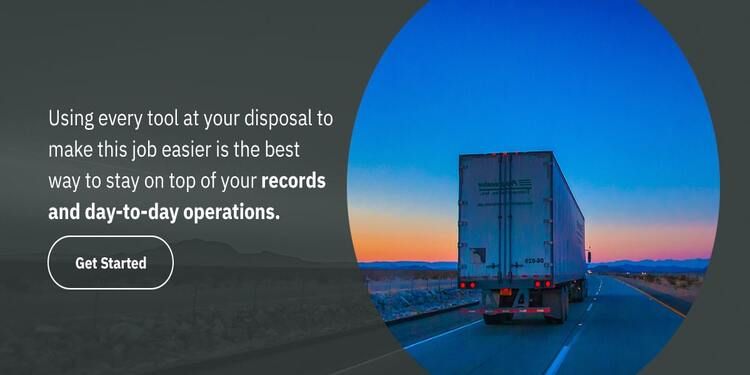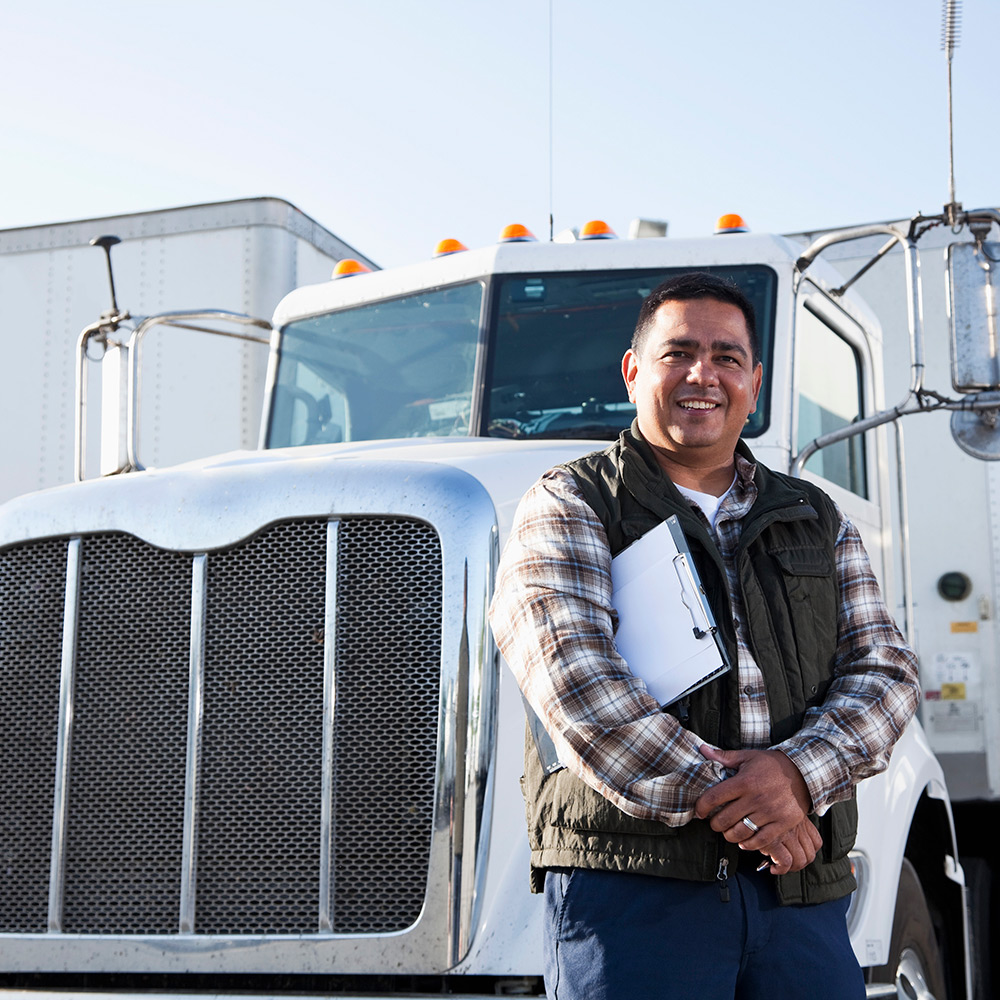
How to Become a Successful Owner-Operator
Being an owner-operator of your own trucking company can be a prospective opportunity for an entrepreneur to pursue. For any company drivers considering running your own business, you need to know what you're getting into first. Becoming an owner-operator requires a certain level of knowledge, experience and setup.
This guide is made for anyone interested in becoming an owner-operator in any capacity. Learn everything you need to know about how to start a trucking business as an owner-operator with this comprehensive exploration of the industry and the steps involved in starting your business on the right foot.
What Is an Owner-Operator?
An owner-operator is a small business owner who runs the company's daily operations. In the trucking industry, an owner-operator is usually a self-employed truck driver. Their business entails transporting goods and materials for clients across the country. Owner-operators are also considered independent drivers who work for themselves rather than for one individual company. Instead, they work with several regular shipping clients and use tools like load boards to find work and earn a living.
Owner-operators usually lease or own their trucks and the equipment they use. Most drive single-rig trucks but can own more than one truck and might have other drivers who work for them.
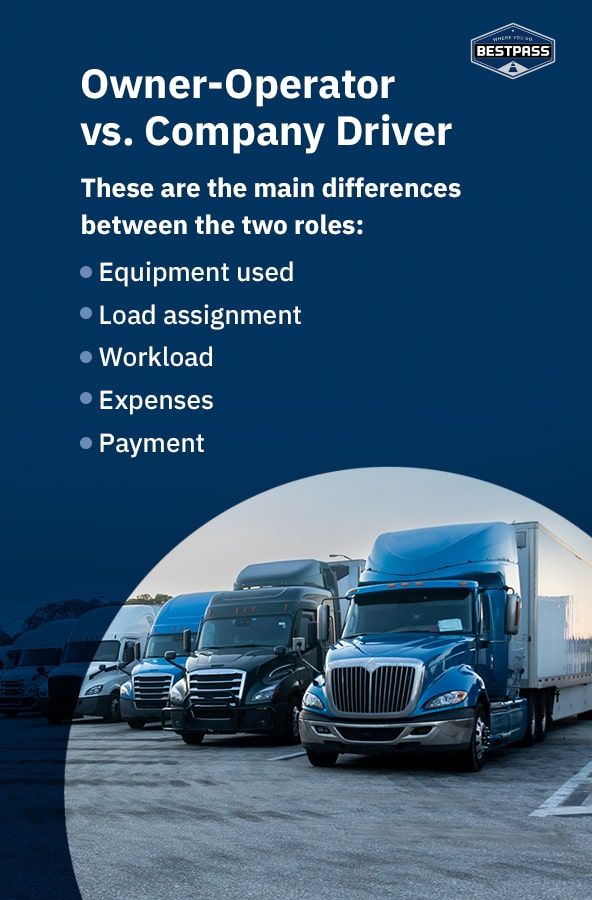
Owner Operator vs. Company Driver
As a company driver looking to have more control over your shipments, who you work for and the type of work you do, you might consider going the owner-operator route. However, you need to understand how to start an owner-operator trucking business on the right terms. To do that, you must understand the differences in responsibilities between a company driver and an owner-operator. These are the main differences between the two roles:
- Equipment used: As a company driver, you are using equipment provided and owned by the company you work for. As an owner-operator, you own or lease the truck, which means the operating costs, maintenance and payments are your responsibility to manage.
- Load assignment: Company drivers are assigned loads by the company dispatcher. Owner-operators have to find the freight they will transport through different means, such as leasing with a truck company, approaching clients to build a network of regulars or — most commonly — using a load board to find work.
- Workload: The job of a company driver is to deliver and pick up loads assigned by their company. As an owner-operator, you need to do everything associated with running a small business. Finding work, hauling loads, record-keeping, paperwork, financial management and making financial decisions are only a handful of the responsibilities involved.
- Expenses: As an owner-operator, you need to pay for fuel, repairs, maintenance and insurance. Company drivers will have these costs covered for them.
- Payment: Company drivers are paid by the mile, can receive bonuses and raises, and pay only for any expenses they incur beyond driving the truck. Owner-operators need to negotiate rates with brokers and determine if they will be paid on a load-by-load basis or through a set contract.
Steps to becoming a successful owner-operator
Now that you know what the role of owner-operator means and what the job involves, you are ready to discover how to become an owner-operator. How you get started in this industry is a matter of knowing what you need and how to thrive as a trucking company. Follow these steps to get your trucking business off to the most successful start possible.
Evaluate Your Personal Situation
Becoming an owner-operator and working in the trucking industry, in general, is more than a career path. It's also a lifestyle choice. As a trucker, you may spend weeks at a time on the road away from your home, family and friends. This requirement is a major consideration, especially for single parents or those caring for elderly family members.
Additionally, previous driving experience is a requirement. Most owner-operators get their start in the industry as company drivers and use their road experience to take on new opportunities. You will need to be able to handle the pressures and stress of running a business and keeping your books in compliance with regulations. Make sure you are up for these demands before choosing to start this journey.
Assess Your Financial Situation
Starting your own business is an investment. You might need to take on additional debt to acquire everything your operation needs. Before leasing or buying a truck, you must first evaluate your financial situation. Make sure you have enough emergency savings to serve as a safety net and keep financial considerations like dependents in mind when making big decisions.
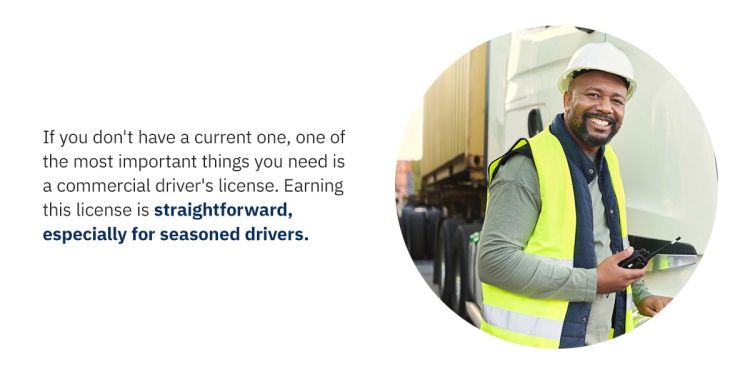
Get a commercial driver's license
If you don't have a current one, one of the most important things you need is a commercial driver's license. Earning this license is straightforward, especially for seasoned drivers. Brush up on the test materials and ace the knowledge and driving exams and the license will be yours. Then, you can legally drive a heavy commercial truck as an owner-operator. Company drivers will generally already have this license or will earn it shortly after being hired on with a trucking business.
Outline a business plan
Every business needs a business plan to succeed. Your business plan should provide a summary of what your owner-operator business is currently like and outline your growth plan over the next five years. In your plan, you will need to explain your business objectives and describe how you aim to achieve them. It needs to include market research that supports your goals and strategies.
A business plan will help you get the funding you may need, cement your growth plan and increase your chances of success. Remember that your business plan is a living document and should be updated at least once a year as your company grows and changes.
Start your business and apply for a USDOT number
Before filing for your U.S. Department of Transport (USDOT) number, you need to form a legitimate business. There are many resources available that will guide you through the process of registering with the U.S. Small Business Administration (SBA). You will need to answer some questions, provide a business structure and pay a fee in order to complete the process.
Once your business has been registered, you'll be able to apply for your USDOT number and your trucking company will be ready to start working.
Get your trucking authority
Your trucking authority, also known as operating authority, means you have the government's permission to earn money hauling freight as your own trucking company. To receive your trucking authority, you will need your USDOT number and a motor carrier (MC) number. Your MC number is what identifies you as a carrier for hire. It ensures clients that you are able to transport goods on a contract-by-contract basis.
Get truck insurance
Your truck insurance is a vital resource for any owner-operator to have. Make sure you are getting the most out of your insurance in terms of coverage and premiums to best suit your requirements and income.
Buy or lease a truck
Purchasing a truck is usually the best move for owner-operators, but that requires a large upfront payment. Nevertheless, owning your truck means you will have full equity, so it will be worth the investment if you can buy it outright or get a loan you can pay off over time.
If you're on the fence, these three questions might help you choose between buying and leasing a truck:
- Question 1: How long will you keep the truck?
- Question 2: Do the financing options fit your budget?
- Question 3: What are the tax implications and benefits?
Find freight with load boards
The easiest way to find freight for your newly formed business is to use load boards. Load boards are online tools that make it significantly easier for owner-operators to find work, negotiate rates, plan routes, monitor paperwork and perform the many other essential business tasks needed to keep your company running smoothly.
Get an electronic logging device (ELD)
Getting an FMCA-compliant ELD is one of the first things you should do once you've earned your trucking authority. You will need to create accounts as a fleet manager and a driver because owner-operators fill both roles. Your ELD must be connected to your truck in order to record your hours of service information.
Stick to the golden profit ratio
Every owner-operator needs to know their profit margins to figure out how well their company is doing. Start by calculating your gross profit, which is the difference between your operating expenses and revenue. Then, divide that number by your total revenue to get your profit margin, which when turned into a percentage, is your ratio. The golden ratio to maintain to keep your business healthy is between 10% and 20%.
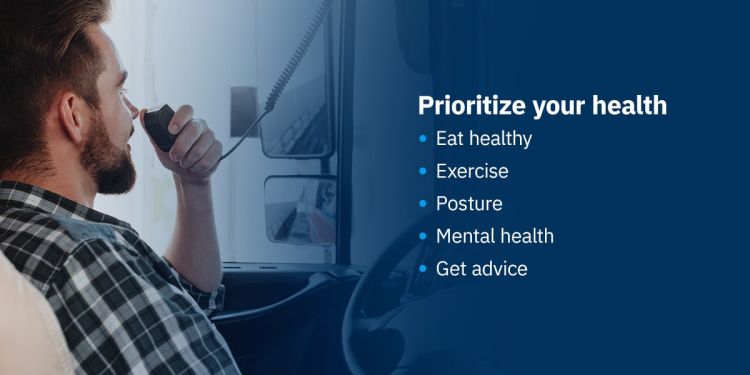
Prioritize your health
Taking care of your physical and mental health is important under any circumstance, but it's even more vital if you're the sole proprietor of your business. You are the one who needs to keep the business running, and taking sick days means spending less time on the road and reducing the revenue you're bringing in. Keep healthy with these tips:
- Eat healthy: Eat healthy meals while on the road and limit your intake of greasy, deep-fried foods.
- Exercise: Make sure you take time to exercise every day to keep yourself healthy and ensure your body stays limber while you drive.
- Posture: Your posture is important, so you need to pay attention to how you are sitting when driving to avoid chronic back and neck pain.
- Mental health: Your mental health is as vital as the physical. Being on the road can get lonely, so make sure you have people you can call and talk to.
- Get advice: Reach out to a doctor for more useful tips for long road trips.
Create a financial management system
You need to find a service that can help you track your finances easily for tax and business reasons. Being able to stay on top of everything while driving and delivering takes a lot out of your time and life. Use a software program or service to help you manage everything properly. A big part of your financial system is toll management, a vital factor that needs to be handled correctly.
Owner-Operator Requirements
Now that you know how to become an owner-operator, you're almost ready to get out there and start trucking. Before you do, here are some extra tips and information about what is required as an owner-operator.
Understand your responsibilities
Fully understanding your responsibilities as an owner-operator is critical to running a successful business. You need to know the following to handle the day-to-day operations of your business effectively:
- Operating procedure: Know how to run your company and reach the goals you've set for yourself. Every decision you make needs to bring you closer to your goals.
- Client specifications: Knowing exactly what your client expects of you and how to exceed their expectations will help your company build a positive reputation.
- Procuring work: You need to know the best way for you to make money as a trucker. Whether it's finding regular clients, leasing on with a carrier or pursuing other means, have a plan that will help you keep a steady income.
Ensure you have the right experience
Ensure you are up for the job and have the necessary skills and experience to drive a truck and run a small business.
Make sure this is the right career path for you
Before you start, reflect on what you want out of your career. If you are confident that this is right for you and is the career you truly wish to follow, then you will be able to find success. Believing in yourself, your business plan and your career is an important part of establishing a flourishing trucking company. You also need to keep your family in mind when making any decisions.
Understand the financial aspects
You need to understand the money required to start and invest in your company. Registration fees, truck purchasing, generating revenue, insurance premiums, profit margins and competitive pricing are all incredibly important parts of managing your business and earning money. You might want to consult an expert if you have any questions or concerns.
Make sure you have all the proper documentation
Finally, ensure you have all the documentation your business needs:
- USDOT number: Get your USDOT and MC numbers before starting, both of which can be obtained through the U.S. Department of Transportation.
- Trucking insurance: Find a well-priced, trustworthy insurance provider that gives you the coverage you want and affordable premiums.
- HAZMAT endorsement: You will be able to transport hazardous materials with a HAZMAT endorsement. You need to secure the right certifications and meet specific standards to achieve this.
Our Toll Management Solutions Are an Owner-Operator's Best Friend
Owner-operators have so much to keep in mind and do to keep their business successful. Using every tool at your disposal to make this job easier is the best way to stay on top of your records and day-to-day operations. That's where Bestpass comes in. We provide a comprehensive tolling management tool that removes the hassle of paying tolls from your to-do list so you can focus on what matters.
Put your trust in the Bestpass toll management platform for a one-stop solution that will save you time, money and stress by managing your toll payments, handling disputes and giving you vital tolling data.
Speak With A Tolling Specialist Now
What we offer is a way for service fleets, trucking companies and owner-operators to simplify their toll payments and get discounts on tolling. We provide violation dispute management services and allow your company to pay for your toll costs in one convenient place.
